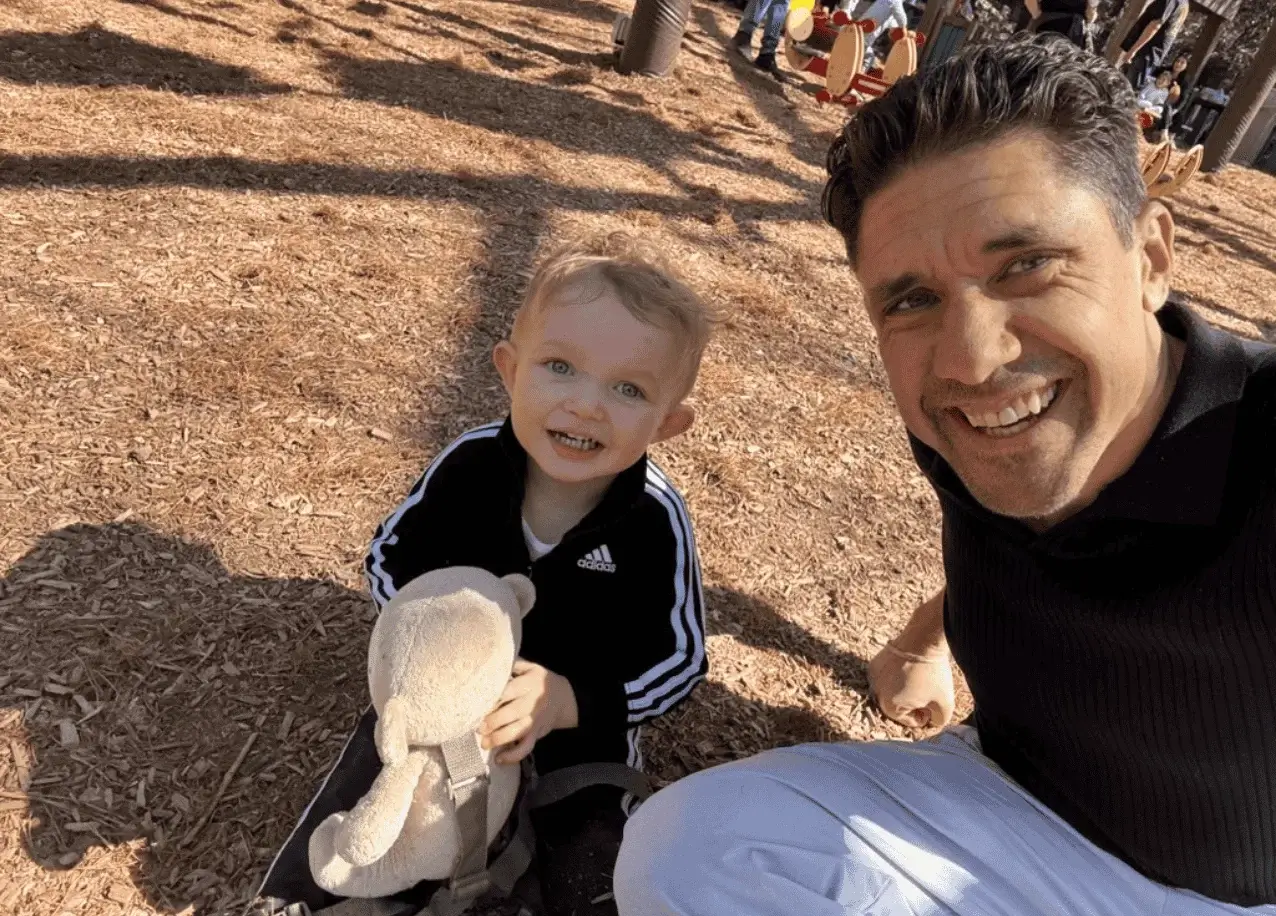Does social media leave you feeling anxious, inadequate, or overwhelmed? You’re not alone. The connection between social media and mental health issues is one of the most urgent issues of our time—especially for Christians who want to guard their hearts and renew their minds.
From the effects of digital environments on mental health to the role of screen time in emotional fatigue, this article explores the spiritual and scientific realities of our online lives.
Table of Contents
- Social Media and Mental Health: What the Bible and Science Reveal
- God’s Design Was Local, Not Global
- Your Brain Has Limits
- The News Was Just as Stressful as the Virus
- Doomscrolling: A New Epidemic
- The Cost of Constant Exposure
- Only God Is Meant to Carry It All
- 7 Steps to Protect Your Soul from News & Social Media Overload
Social Media and Mental Health: What the Bible and Science Reveal
Social media was created to connect us—but more often than not, it leaves us feeling paranoid, distracted, and discontent. Regular users are plagued with intrusive thoughts, desires for more, and decision fatigue.
And the science is clear: social media and mental health are deeply intertwined. What was once a tool for relationships has become a constant stream of opinions, comparisons, crises, and curated highlight reels—all competing for our attention and shaping how we feel.
The Research: Constant Connection Comes at a Cost
Numerous studies confirm that excessive social media use is strongly associated with mental health concerns like depression, anxiety, and low self-esteem.
- A 2022 review in Current Opinion in Psychology found that doomscrolling and heavy social media use lead to increased paranoia, poor sleep, and depression.
- A University of Pennsylvania study revealed that limiting social media to 30 minutes a day significantly reduced feelings of loneliness and depressive symptoms.
- The American Psychological Association (APA) states that adolescents who use social media more than 3 hours per day are at a significantly higher risk of mental health concerns such as emotional dysregulation and feelings of anxiety.
These findings align with a broader Christian perspective on social media apps: technology must be stewarded wisely, not allowed to rule our lives.
Beyond the News: The Comparison Trap
Even when you’re not consuming breaking news, comparing your life to those on social media can quietly undermine your peace. Highlight reels of other people’s lives—perfect homes, vacations, or ministries—can trigger feelings of inadequacy.
“Let us not become conceited, provoking one another, envying one another.”— Galatians 5:26 (NKJV)
Platforms are designed to keep you scrolling with dopamine hits—likes, shares, and algorithms that reward outrage and envy. The result? Burnout, distraction, and digital addiction. This constant feedback loop might keep you “in the know,” but it takes the joy from everyday life.
Spiritually Disconnected
Social media affects more than your emotions. It can slowly disconnect you from God’s presence and your spiritual sensitivity.
“Set your mind on things above, not on things on the earth.”— Colossians 3:2 (NKJV)
Instead of peace, we get overstimulation. Instead of prayer, we get scrolling. Instead of discernment, we get information overload.
What Can You Do? A Faith-Based Digital Detox
- Curate your feed – Follow truth-filled, encouraging voices.
- Take breaks – Weekly media fasts can restore clarity.
- Limit screen time – Use timers or app blockers to reduce digital noise.
- Replace scrolling with Scripture – Feed your soul, not your stress.
- Ask God for wisdom – Let the Holy Spirit guide your online choices.
“I will set nothing wicked before my eyes…” — Psalm 101:3 (NKJV)
These faith-based mental health tips aren’t just good ideas—they’re spiritual practices that help us walk in freedom.
If your social media habits are hurting your mental health, your peace, or your walk with God—it’s time to reset. This is one of the key reasons why so many people are taking a fresh look at the link between social media and mental health in light of their spiritual well-being.
God’s Design Was Local, Not Global
We truly aren’t meant to take on every cause or hear every bad piece of news. When God created humanity, He didn’t assign us the burdens of the entire earth. He gave Adam a specific place:
“Then the Lord God took the man and put him in the garden of Eden to tend and keep it.”— Genesis 2:15 (NKJV)
Adam wasn’t created to oversee the globe—he was called to be faithful in his garden. You were, too.
Today, social media gives us access to global suffering, crises, and opinions 24/7. This creates an illusion that we are responsible for it all. That’s why conversations about social media and mental health must include boundaries and discernment.
But God’s original design was personal, local, and intimate community participation. When we constantly engage with the world’s problems through a screen, we risk abandoning our primary calling: to faithfully steward what God has put right in front of us—our homes, families, and communities.
Use this lens to evaluate your online habits: Are they expanding your heart for others—or distracting you from what matters most?
This is a crucial component of a biblical response to digital overwhelm.
Your Brain Has Limits
God gave us incredible minds—but even they have limits. And exceeding those limits impacts our quality of life. Psychologist Robin Dunbar theorized that humans can maintain about 150 meaningful relationships—known as Dunbar’s Number.
Yet on social media, we may follow thousands of accounts, absorb opinions from every direction, and try to respond to an overwhelming number of updates. This overload taxes our nervous system, impairs focus, and creates emotional overwhelm.
A 2020 study published in Nature Neuroscience revealed that the brain requires downtime to consolidate information and recover emotional equilibrium. Constant digital engagement robs us of that rest.
Your mind wasn’t made to monitor the world—it was made to meditate on God’s truth. The conversation around social media and mental health confirms that our spiritual and cognitive design needs limits.
“You will keep him in perfect peace, whose mind is stayed on You…” — Isaiah 26:3 (NKJV)
The News Was Just as Stressful as the Virus
Social media turned what should have been brief updates into a relentless cycle of fear. During the COVID-19 pandemic, platforms amplified every tragic headline, alarming statistic, and conflicting opinion. What should have been a tool for communication quickly became a source of constant stress.
The result? Even those physically untouched by the virus experienced emotional distress. One study published in Health Psychology confirmed that repeated media exposure during the pandemic heightened acute stress responses—often more so than the actual threat of illness. This was especially true for those consuming news through social media, where sensationalism spreads faster and wider.
Chronic stress is not just uncomfortable—it’s damaging with several potential harms. Elevated cortisol levels, impaired sleep, increased anxiety, and reduced immune function are all side effects. And for Christians, there’s a spiritual cost as well: peace is replaced by panic, and trust in God is overshadowed by fear and feelings of sadness.
“Therefore do not worry about tomorrow…” — Matthew 6:34 (NKJV)
Understanding the link between social media and mental health during crises helps us set new boundaries for how and when we engage with online content.
During COVID-19, even people who were physically safe experienced trauma symptoms due to relentless exposure to alarming news—especially through social media.
Social media and media exposure were stronger predictors of distress than direct exposure to the virus itself. (Holman, Thompson, Garfin & Silver, 2020)
“Therefore, do not worry about tomorrow…” — Matthew 6:34 (NKJV)
While staying informed has its place, living in constant alert mode—especially through digital platforms—keeps us in a heightened stress state with increased levels of anxiety. This is not sustainable or healthy. More evidence that social media and mental health are tightly connected in our current world.
Doomscrolling: A New Epidemic
Doomscrolling refers to compulsively scrolling through bad news or negative content, especially before bed. It’s been directly linked to increased rates of anxiety, depressive symptoms, and insomnia.
According to a study published in the Journal of Affective Disorders, doomscrolling during the COVID-19 pandemic increased emotional burnout and psychological distress—especially among social media users.
This behavior doesn’t help us become more informed—it overwhelms us and leaves us less capable of engaging meaningfully in real life. It’s another example of how unchecked digital habits, especially with social networking sites, can negatively affect social media and mental health conditions.
If your first instinct is to open your phone and scroll when you’re stressed or tired, it may be time to break the cycle.
The Cost of Constant Exposure
What happens when we allow our minds to be constantly stimulated by digital input? We lose something sacred: the ability to be still.
Psychologically, nonstop digital input impacts attention span, increases impulsivity, and reduces our ability to think deeply or reflect spiritually. The Journal of Communication notes that people exposed to large amounts of digital content have more difficulty making decisions, regulating emotions, and recovering from stress.
From a biblical standpoint, stillness and silence are vital spiritual disciplines. God’s voice often comes in whispers, not in the chaos of digital clamor.
“Be still, and know that I am God…” — Psalm 46:10 (NKJV)
And when we talk about mental health and screen time, we’re not just talking about wasted hours—we’re talking about the erosion of peace, presence, and purpose. The more noise we take in, the less room we have to hear God.
We need to reclaim the gift of silence and solitude—not just occasionally, but as a lifestyle of worship and renewal. Chronic overexposure to digital input has a hidden cost. It erodes our ability to focus, reflect, and connect.
You can’t hear the whisper of the Holy Spirit when you’re drowning in digital noise.
Only God Is Meant to Carry It All
You are not omniscient. You are not omnipresent. And yet, social media tricks us into thinking we should be. We read updates from across the globe and feel guilty for not doing more. But this emotional overload wasn’t meant for us—it belongs to God.
Jesus offers a better way: “Come to Me, all you who labor and are heavy laden, and I will give you rest.” — Matthew 11:28 (NKJV)
The pressure to care about every injustice, comment on every tragedy, and fix every crisis is not from God. That’s social media burnout masquerading as compassion. The truth is, God hasn’t called you to carry every burden—but to partner with Him in the burdens He assigns to you.
Letting go of what’s not yours is not neglect—it’s obedience. It allows you to be effective where you’re actually called. Rest is holy. Let it be part of your daily rhythm.
You are not God. You are not omnipresent. And trying to stay updated on every crisis through social media will only leave you spiritually depleted.
There is a profound difference between compassion and control. When we try to carry the weight of the world, we’re stepping into a role we were never meant to fill. God invites you to lay that burden down.
Biblical Examples of Focused Living
The Bible is filled with faithful people who lived with focus in chaotic times. They didn’t respond to everything. They responded to what God had given them.
- Jesus regularly stepped away from the crowds. He healed many—but not all. He didn’t chase every crisis; He followed His Father’s voice (Luke 5:16).
- Nehemiah refused distractions from those who opposed his work. “I am doing a great work and cannot come down.” (Nehemiah 6:3)
- Paul chose to stay on mission despite the overwhelming needs around him. He wrote letters from prison, not out of panic—but out of purpose.
Their examples remind us that how social media affects the brain is not just a mental health crisis—it’s a spiritual one. Distraction can derail destiny.
If Jesus didn’t heal every person and Paul didn’t fix every injustice, why do we expect ourselves to solve the world’s problems through a screen?
Your mission is to be faithful in your lane—not everywhere at once.
But What About Global Responsibility?
Being globally aware is good. But social media has confused awareness with obligation. Just because you see it doesn’t mean you’re called to fix it.
“For we are His workmanship, created in Christ Jesus for good works, which God prepared beforehand…”— Ephesians 2:10 (NKJV)
You were created for specific good works. The enemy of that calling is distraction—even by things that seem noble. Social media can lure us into emotional overcommitment, leaving us exhausted and ineffective.
A Christian perspective on social media requires wisdom and boundaries. Steward the causes God has given you. Grieve and pray for others—but don’t take on guilt or shame for what’s beyond your role.
Social media gives us a false sense of responsibility for things outside our assignment. We must return to a Spirit-led model of discernment, not distraction.
Ask God: “What are the good works You’ve prepared for me today?” Then pour your energy there.
7 Steps to Protect Your Soul from News & Social Media Overload
It’s not enough to know that social media affects our health. We need practical, Spirit-led action. Here are seven ways to begin:
- Set a News & Social Media Curfew – Avoid screens first thing in the morning and right before bed. Your day should begin and end with God’s Word, not the world’s noise.
- Limit Platforms & Accounts – Unfollow accounts that stir up anxiety, envy, or anger. Fill your feed with peace-promoting voices and minimize online interactions with those who do not.
- Pray Through Headlines – Turn worry into intercession. You don’t need to respond to everything, but you can pray about anything.
- Take Weekly Media Fasts – Give your soul a sabbath. Whether for a day or a weekend, unplug to reconnect.
- Read Scripture Daily – Let the Word renew your mind and realign your perspective.
- Engage Locally – Global needs are real, but local love is powerful. Volunteer, encourage, serve—right where you are.
- Stay in Community – Don’t let the noise of digital environments isolate you and cause social withdrawal. Find real-life, faith-filled friendships that speak truth and give perspective.
These small steps can radically shift your relationship with technology—and revive your sense of peace, improving your quality of life.
Permission to Disconnect
You don’t need to explain or justify stepping back. You have permission—from God Himself—to disconnect.
“Above all else, guard your heart…” — Proverbs 4:23 (NIV)
Guarding your heart in the digital age means guarding your attention, your peace, and your mental health. Protecting mental health in a digital world starts with intentional disconnection. A digital detox is one of our recommendations for self-love for these reasons.
A Call to Faithful, Peace-Filled Living
The data is clear. The Scriptures are louder. From the effects of social media on mental health to the spiritual impact of constant comparison, we know something is off. But we also know the way forward.
God is calling His people to live differently—to be marked by peace in a noisy world. To be focused in a distracted age. To be joyful in the midst of outrage.
You don’t need to fix the internet. But you can guard your heart. You can raise your kids with wisdom. You can model calm in the chaos. You can resist the pull of doomscrolling and choose hope instead.
Your life is not an emergency. It’s a mission. And God has equipped you with everything you need to live well, think clearly, and love deeply—even in the digital age.
So log off when needed. Rest in His presence. And trust that you were never meant to know everything—only the One who does.
You weren’t designed to know everything. You were designed to live in communion with God and in connection with others.
Choose presence over panic. Peace over pressure. Faith over fear. Let God be God. You be faithful.
- D. R., Silver, R. C., & Holman, E. A. (2020). The Novel Coronavirus (COVID-2019) Outbreak: Amplification of Public Health Consequences by Media Exposure. Health Psychology, 39(5), 355–357.
- Holman, E. A., Thompson, R. R., Garfin, D. R., & Silver, R. C. (2020). The unfolding COVID-19 pandemic: A probability-based, nationally representative study of mental health in the United States. Science Advances, 6(42), eabd5390.
- Bendau, A., Petzold, M. B., Pyrkosch, L., et al. (2021). COVID-19 pandemic, anxiety, and depression in Germany: A longitudinal population-based study. Journal of Affective Disorders, 278, 55–61.
- Dunbar, R. I. M. (1992). Neocortex size as a constraint on group size in primates. Journal of Human Evolution, 22(6), 469–493.
- Schmidt, L., et al. (2022). Digital media use and cognitive function: A systematic review. Journal of Communication, 72(2), 123–137.
- Hunt, M. G., Marx, R., Lipson, C., & Young, J. (2018). No more FOMO: Limiting social media decreases loneliness and depression. Journal of Social and Clinical Psychology, 37(10), 751–768.
- Vannucci, A., & Ohannessian, C. M. (2022). Social media use and anxiety in emerging adults. Current Opinion in Psychology, 45, 101289.
- American Psychological Association. (2023). Health Advisory on Social Media Use in Adolescence.
- Margulies, D. S., et al. (2020). Resting-state networks and their functional organization. Nature Neuroscience, 23(12), 1644–1654.







